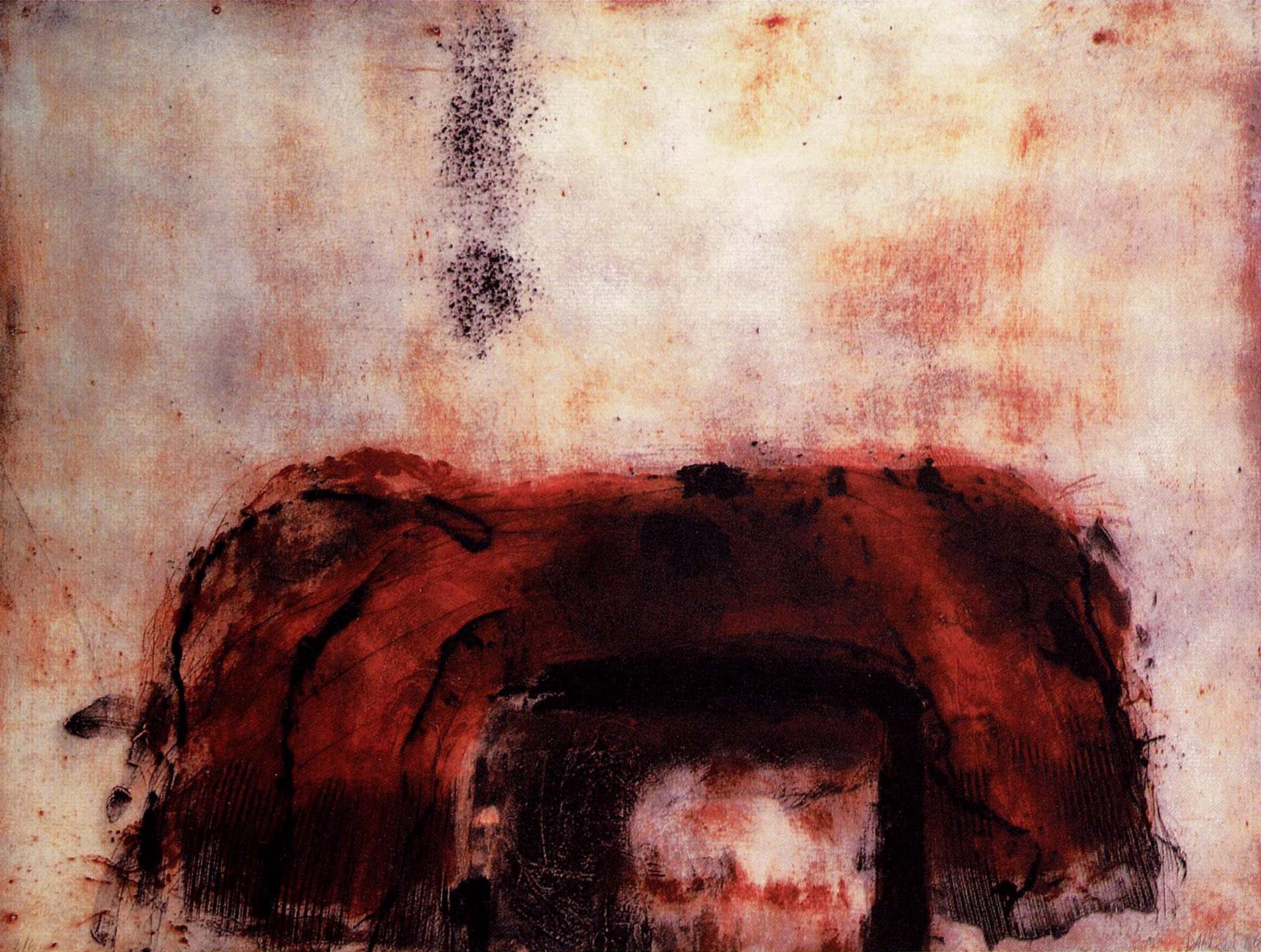Betrayal and the Politics of Survival in Syria
“circonstance du lieu” (1986) by Ziad Dalloul from “Dalloul,” published by Centre Culturel Francais/Galerie Atassi, October 1996.
Syrians have nursed a wound that has never been given the chance to heal, just barely scabbing over before it is reopened once more — so much so that the Syrian experience has become synonymous with pain and suffering. In the aftermath of the coastal massacres in March, Samar Yazbek found herself feeling empty, searching for answers only to be met with silence. “The road I had crossed with yesterday’s companions appeared as nothing but a faded shadow of a distant echo, as if what I once considered a shared path had been nothing more than a parallel crossing,” she writes. If the massacre revealed one thing, it was that the camaraderie she thought existed was, in truth, a facade. Everyone is motivated by personal interests at the expense of others. This feeling of hopelessness is not unfamiliar, but one that has become frightfully common as bloodshed, corruption, and injustice persist with little to no accountability.
Yazbek’s "Narcissistic Wound,” published in The New Arab*, explores the power that pain holds over us, but whether this becomes a constructive or self-destructive force depends on how it is harnessed. The events on the Syrian coast and all the violence following it are a betrayal that prompts her to ask philosophical questions: Is evil something that overtakes us all at once, or is it something that slowly took root and festered from within? Is evil like a hard metal, coming back stronger each time it is struck, until we are completely reshaped along with it? Or is evil something that cannot exist by itself, but exists to contrast with good?
Transforming past pain and wounds into a constructive, creative force rather than perpetuating the cycle of evil is crucial, but approaching this problem when ‘evil’ is already deeply rooted in the daily lives of Syrians poses many challenges. In Yazbek’s words, "Evil has ceased to be an exceptional event in our land. It has become the hidden structure that kneads souls, fragments families, and splinters communities, just as it crumbles ancient stones." Evil — which she identifies as Syria’s politics, the corruption, violence, injustice rampant in its society, and the obstacles to survival — is responsible for the fragmentation of families and communities as well as the destruction of Syrian history and identity.
Becoming self-absorbed in one’s pain only aids in the spread of evil; instead, pain can become a driving force that combats evil. Yazbek states that Syrians must change their reactions to evil, explaining that "it is not enough to describe the ruin or lament it. We must understand it as a raw material that compels us to reshape ourselves." A change must occur in order to end the cycle, and she states that Syrians must 'reforge' themselves to become stronger, transforming pain into fuel for survival and scars into proof that Syrians continue to resist, not relent to, evil.
To do so, one must alter one's perception of evil. Yazbek explains that philosophers have long considered evil as a "primal substance that enters into the forging of humanity. Pain here is not a passing incident, but the very condition of a second birth. The wound does not halt the journey -- it creates a harder will as if evil itself transforms into a hammer, reshaping us anew." She states that the “years that culminated in betrayal,” referring to the countless tragedies, massacres, and death that Syrians have endured thus far, are experiences that must become fuel for persistence and the will to forge onward in resistance. Betrayal goes "beyond being an individual matter," but is a "recurring image of what an entire society endures, teetering at the edge of collapse."
While ‘evil’ cannot be erased (at least not in its entirety), Yazbek stresses the power one can reclaim by re-orienting their attitude towards it, using its existence as motivation to counteract it; in essence, she urges the necessity of "draw[ing] meaning from pain," adding that "when we succeed in transforming suffering into new awareness, we create a public good and open a crack in the wall of despair."
Ultimately, Yazbek believes this is the most constructive action to take. Otherwise, these feelings of betrayal and sadness will fester and become like "poison hiding behind silence." And silence is an accomplice to the crime. ‘Betrayal’ is not an end; in the face of pain, the will to resist must withstand and overcome.
*Samar Yazbek’s essay, “Narcissistic Wound,” was published in Arabic in The New Arab.
This article appeared in Inside Al Jadid Reports, No. 138, 2025.
Copyright © 2025 AL JADID MAGAZINE

